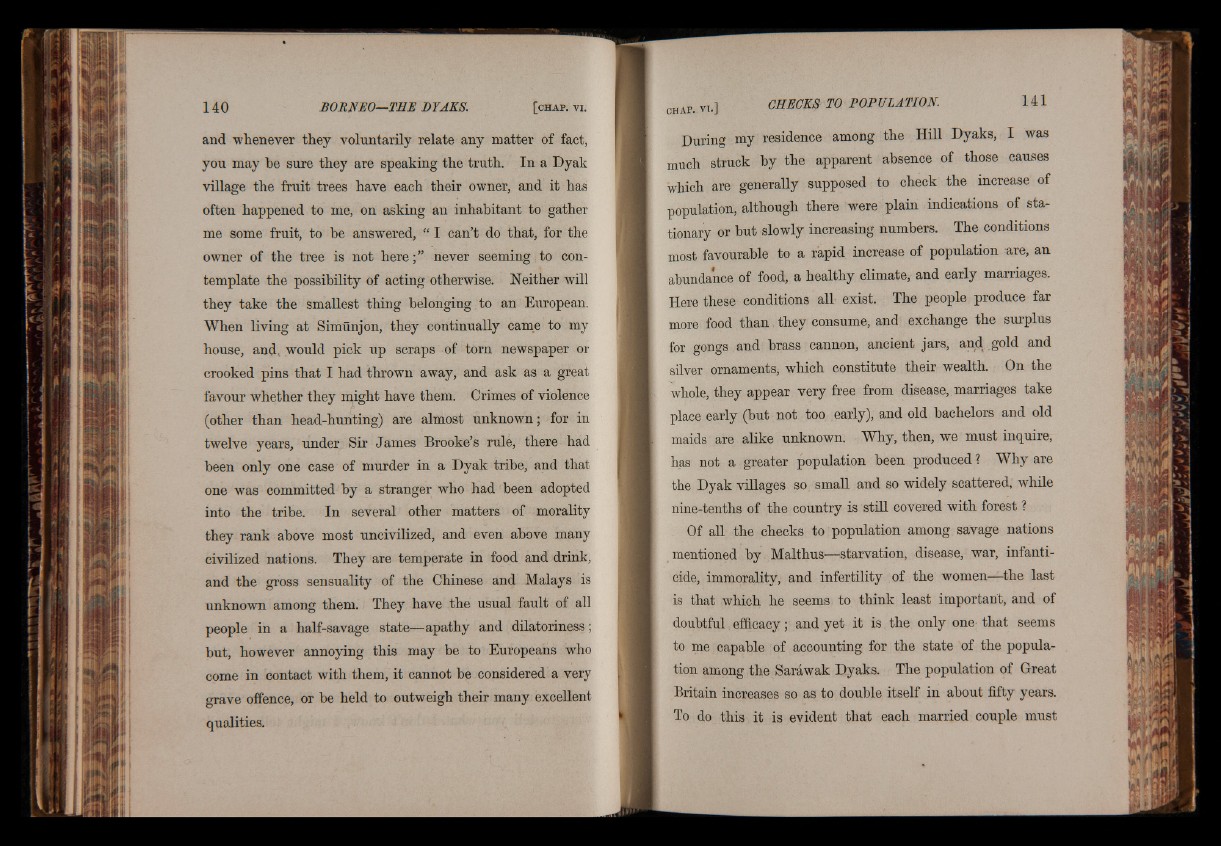
and whenever they voluntarily relate any matter of fact,
yon may he sure they are speaking the truth. In a Dyak
village the fruit trees have each their owner, and it has
often happened to me, on asking an inhabitant to gather
me some fruit, to be answered, “ I can’t do that, for the
owner of the tree is not here;” never seeming to contemplate
the possibility of acting otherwise. Neither will
they take the smallest thing belonging to an European.
When living at Simunjon, they continually came to my
house, and. would pick up scraps of torn newspaper or
crooked pins that I had thrown away, and ask as a great
favour whether they might have them. Crimes of violence
(other than head-hunting) are almost unknown; for in
twelve years, under Sir James Brooke’s rule, there had
been only one case of murder in a Dyak tribe, and that
one was committed by a stranger who had been adopted
into the tribe. In several other matters of morality
they rank above most uncivilized, and even above many
civilized nations. They are temperate in food and drink,
and the gross sensuality of the Chinese and Malays is
unknown among them. They have the usual fault of all
people in a half-savage state—apathy and dilatoriness;
hut, however annoying this may be to Europeans who
come in contact with them, it cannot he considered a very
grave offence, or he held to outweigh their many excellent
qualities.
D u r i n g my residence among the Hill Dyaks, I was
much struck by the apparent absence of those causes
which are generally supposed to check the increase of
population, although there were plain indications of stationary
or hut slowly increasing numbers. The conditions
most favourable to a rapid increase of population are, an
abundance of food, a healthy climate, and early marriages.
Here these conditions all exist. The people produce far
more food th an . they consume, and exchange the surplus
for gongs and brass cannon, ancient jars, and gold and
silver ornaments, which constitute their wealth. On the
whole, they appear very free from disease, marriages take
place early (but not too early), and old bachelors and old
maids are alike unknown. Why, then, we must inquire,
has not a greater population been produced ? Why are
the Dyak villages so small and so widely scattered, while
nine-tenths of the country is still covered with forest ?
Of all the checks to population among savage nations
mentioned by Malthus—starvation, disease, war, infanticide,
immorality, and infertility of the women—the last
is that which he seems to think least important, and of
doubtful efficacy; and yet it is the only one that seems
to me capable of accounting for the state of the population
among the Sarawak Dyaks. The population of Great
Britain increases so as to double itself in about fifty years.
To do this it is evident that each married couple must